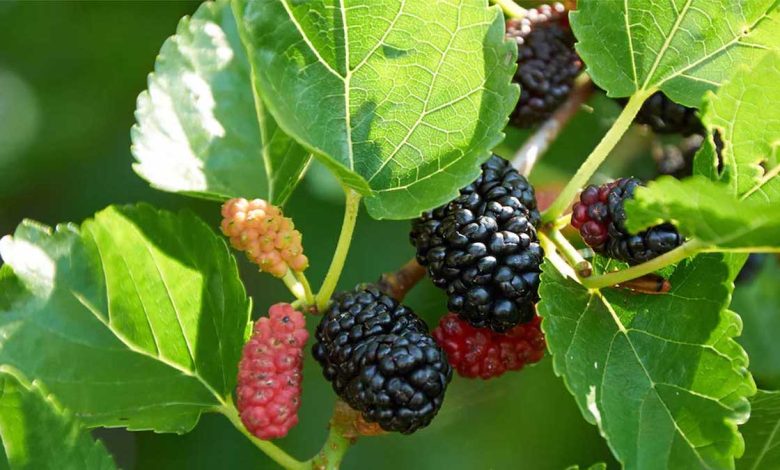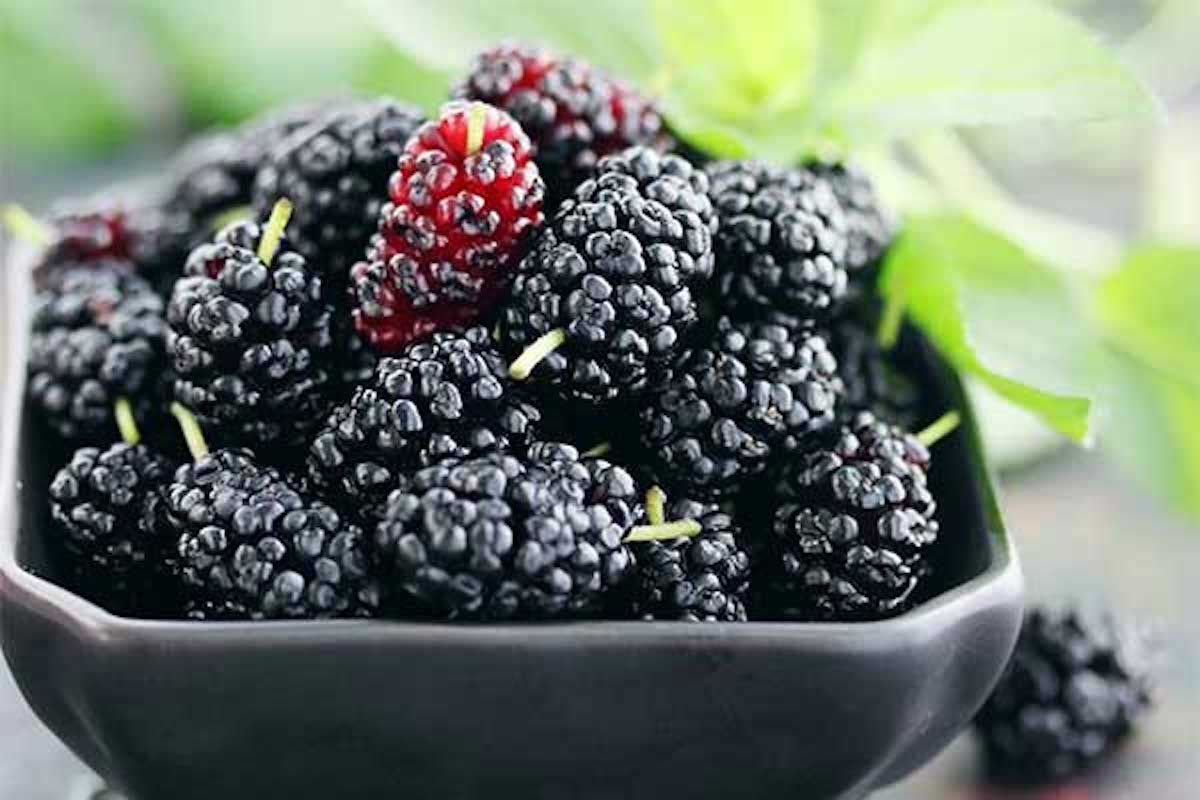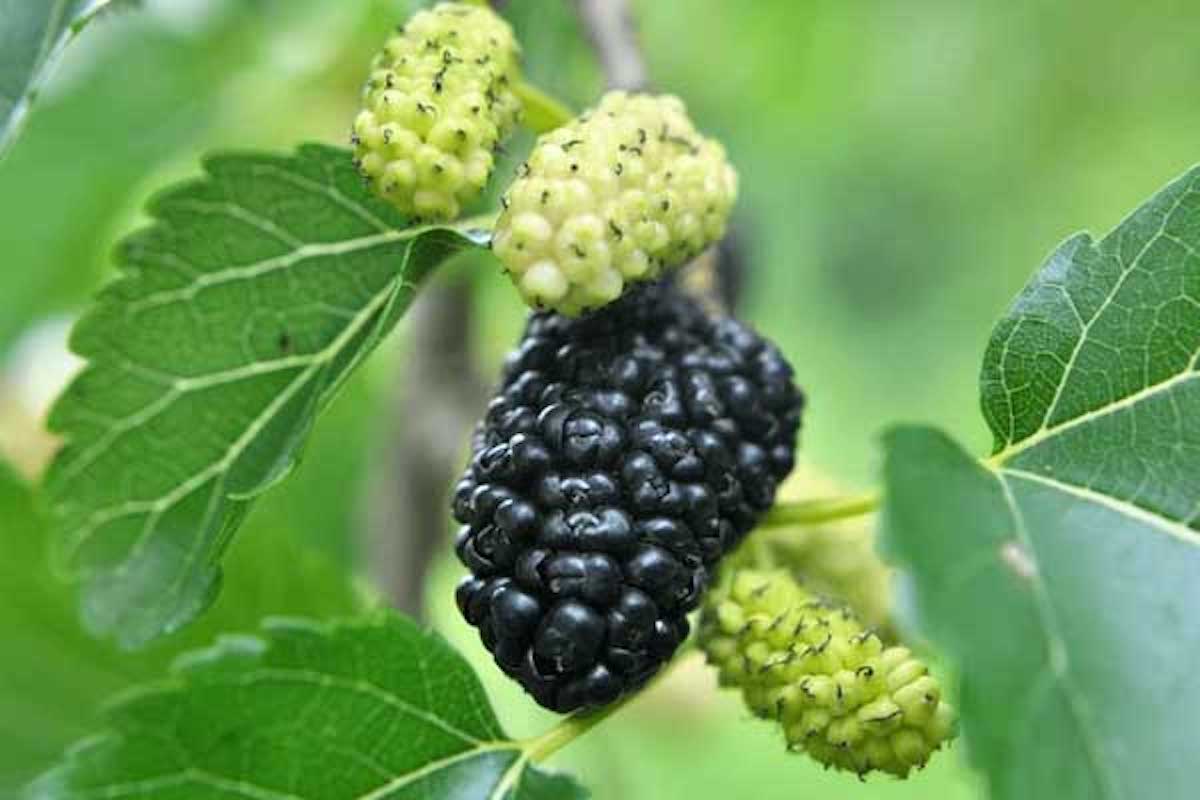Mulberry Benefits: Discover All the Advantages of This Delicious Fruit

Mulberry Benefits: One of the special springtime fruits with many fans is the mulberry, also known as Shah Toot or black mulberry. This tasty fruit can be enjoyed in various ways — eaten fresh, frozen for later use, or used to make syrup and jam to savor its sweet and tangy flavor. In this article, we’ll explore the health benefits of mulberries and explain why you should include them in your diet.
What Is the Mulberry Fruit?
The mulberry (Morus nigra) is a plant found around the world. It has multiple uses: its ripe fruit, branches, and root bark are used in traditional medicine, while the fruit is consumed fresh or used in desserts and for coloring sweets.
Mulberries contain pectin, which may act as a mild laxative. Some compounds in the fruit and branches may also help lower blood sugar levels. Across cultures, mulberries have been used for treating constipation, menopause symptoms, runny nose, and more — though there’s limited scientific evidence supporting these uses.
Mulberry Benefits, Mulberries should not be confused with white mulberries — they are completely different plants with distinct health benefits. They also differ from other similar berries like raspberries or blackberries.
Nutritional Value of Mulberries
You may be surprised to know that 88% of fresh mulberries is water. One cup (140 grams) of mulberries contains only 60 calories.
Here’s a detailed breakdown of the nutrients in 100 grams of fresh mulberries:
Nutrient Amount (per 100g)
Calories 43 kcal
Water 88%
Protein 1.4 g
Carbohydrates 9.8 g
Sugars 8.1 g
Fiber 1.7 g
Fat 0.4 g
Mulberries are low in calories and sugars and high in water and fiber, which makes them excellent for hydration and digestion.

Vitamins and Minerals in Mulberries
Mulberry Benefits, Mulberries are a rich source of vitamin C and iron, and also provide good amounts of potassium, vitamin E, and vitamin K.
Moreover, mulberries are packed with plant compounds like anthocyanins, which are responsible for their deep purple color and offer numerous health benefits. The key compounds include:
Anthocyanins – Antioxidants that may protect against LDL cholesterol oxidation and help prevent heart disease.
Cyanidin – The primary anthocyanin in mulberries, responsible for their reddish-purple hue.
Chlorogenic acid – Found in many fruits and vegetables, this antioxidant has various health benefits.
Rutin – A powerful antioxidant that may protect against chronic diseases like cancer, diabetes, and heart disease.
Myricetin – Believed to offer protective effects against certain cancers.
The quantity of these compounds varies by mulberry type. Ripe, dark-colored mulberries contain more antioxidants and offer greater health benefits than unripe or pale ones.
Health Benefits of Mulberries
Eating fresh mulberries can help protect the body against several chronic diseases such as heart disease, diabetes, and cancer. Below are some of the key health benefits:
1. Reduces Cholesterol
Cholesterol is essential for the body, but high levels can increase the risk of heart disease. Animal studies suggest that mulberries help reduce fat buildup and lower cholesterol. They may also help prevent fat accumulation in the liver.
2. Supports Blood Sugar Control
Mulberry Benefits, People with type 2 diabetes often struggle with blood sugar spikes after meals. Mulberries contain a compound called 1-deoxynojirimycin, which inhibits an intestinal enzyme that breaks down carbs. This may slow down sugar absorption and help manage blood sugar — though more human studies are needed.
3. Lowers Cancer Risk
Oxidative stress damages cells and increases the risk of cancer. Mulberries have long been used in traditional Chinese medicine for their anti-cancer effects. Recent research suggests their antioxidants may help reduce oxidative damage, lowering cancer risk.

4. Helps Prevent Fatty Liver Disease
Mulberries are rich in antioxidants like anthocyanins, chlorogenic acid, and flavonoids, which reduce inflammation and oxidative stress — two key contributors to fatty liver disease. Lab studies show that mulberry extract can reduce fat buildup in liver cells, helping protect this vital organ.
Side Effects of Mulberries
Mulberry Benefits, Although mulberry allergies are rare, mulberry tree pollen can cause allergic reactions in sensitive individuals. People allergic to figs or birch pollen may also react to mulberries.
Mulberry Tea
Besides enjoying mulberries fresh, in jam, or as syrup, you can also drink mulberry tea. Traditionally used to relieve menopause symptoms, lower blood pressure, and prevent diabetes, it may also boost the immune system, treat diarrhea, and aid in weight loss. This tea can be made from the leaves, stems, roots, and fruit of the mulberry plant.
Also Read:
6 Weight Loss Diets You Won’t Want To Miss!
7 soup recipes that can help you reduce belly fat in no time




